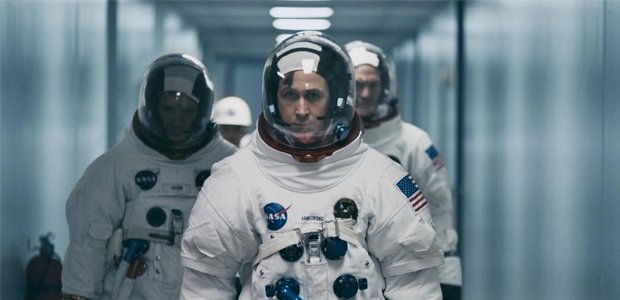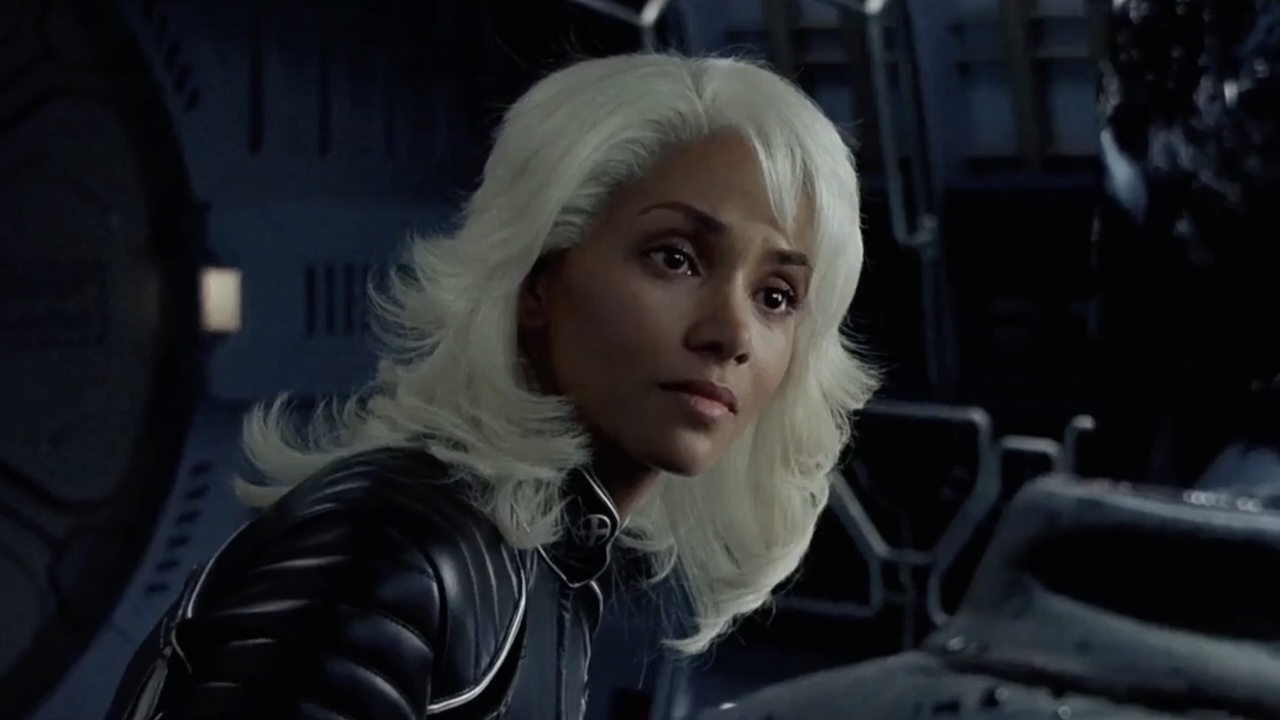To this point in his career, director Damien Chazelle's work has been driven by intense emotion. Whiplash is raw passion and drive. La La Land is built on love and loss. Hell, even his script work on 10 Cloverfield Lane is a ride of constant fear and paranoia. It's been his ability to tap into those feelings that has made his movies each into individual visceral experiences.
First Man, however, is a different beast. It's a film that documents one of the most important achievements in the history of humanity, and is stunningly dedicated to reality, but most importantly, Neil Armstrong is unlike any lead character Damien Chazelle has worked with so far. Rather than having the spectrum of feelings we've seen from the director's other protagonists, Armstrong is portrayed as a stoic -- surely a byproduct of his dangerous and potentially fatal work, where emotions can mean life or death. But while that disposition may have been key for the job, it's also not exactly cinematic.
So while First Man is a stunningly-shot, beautiful, and thrilling piece of work, it more often than not feels cold and detached, preventing you from fully engaging with it.
Based on the book First Man: The Life of Neil A. Armstrong by James R. Hansen, and adapted by Josh Singer, First Man begins nearly a decade before the fateful Apollo 11 mission when Armstrong (Ryan Gosling) was working as a test pilot -- flying 140,000 feet above the Earth's surface and allowing the film to open with a stunning view of the planet's curvature... and a life-or-death situation. He is struck by tragedy when his two-year-old daughter is diagnosed with cancer, but finds opportunity for a fresh start for his family when he is recruited into the NASA program.
Relocating to Houston, Texas with the never-ending support of his wife Janet (Claire Foy) and his two sons, Neil begins his training for what will eventually be humanity's first manned trip to the Moon. As he partakes in that particular adventure, however, he fully experiences the very real danger and stakes of what he's doing, not only coming extraordinarily close to risking his own life, but losing a number of his colleagues.
First and foremost, First Man is absolutely a film that demands to be seen on the biggest screen possible -- especially in IMAX, given the select sequences shot specifically with the brand's cameras. The reveal of the curvature of the Earth at the start of the movie mentioned earlier is really just the tip of the iceberg in terms of the visuals First Man delivers, and even when it's operating with the more standard 2.39:1 aspect ratio, it still has moments that leave you temporarily stunned (a terrifying spin-out featured in the second act will make you hold your breath far longer than any doctor would recommend).
Of course, the real showstopper and primary reason to see the film is the event up to which the entire story leads: Neil Armstrong's first steps on the moon (I refuse to accept any complaints that this is a spoiler). A sequence where the IMAX cameras are in full effect, it's a jaw dropping experience, and it can be easily said there are few historical dramas that sweep you away quite like First Man does in those moments. It's an epic demonstration of the power of cinema, as Damien Chazelle invites you to the cratered surface right alongside the heroes who took a giant leap for mankind.
Your Daily Blend of Entertainment News
Any moment where Neil Armstrong is seated in a cockpit is pure excellence, but that's not all that the movie contains. And while the world's most famous astronaut may have done some incredible things during his life, he's also just not that captivating or charismatic as a personality. It's not really a situation where blame can be placed at the feet of Damien Chazelle or Josh Singer, but rather just a side-effect of dedication to reality capturing the subject. Telling the story any other way would have been a betrayal to one of humanity's true heroes, and surely made for a worse film, but it also prevents First Man from being a great one.
This also isn't meant to short sell the performances by Ryan Gosling and Claire Foy, both of whom do admirable work with the material they are given. Gosling, in fact, does some of his best work when his characters are all logic, no emotion (see: Drive), and his impressive calm is actually able to shine in moments where you yourself feel like you're freaking out just watching him nearly get himself killed.
Meanwhile, as Janet, Claire Foy's job is basically to be properly scared for her husband's fate, and make sure that her kids are growing up alright despite the incredible stress in the family's life -- which is a trope we constantly see in these kinds of docudramas/biopics. It's ultimately pretty thankless, but that doesn't stop Foy from doing it well. She not only doesn't fall into the trap of over-compensating for her husband's phlegmatic disposition, but instead demonstrates why they are a couple by existing on the same wavelength as him. Again, it's not the more compelling material, and it winds up leading to a very emotionally confusing final scene, but you're convinced that this is who Janet Armstrong was.
Walking out of First Man, I realized that my feelings very much lined up with my thoughts about Christopher Nolan's Dunkirk last year. Both have riveting sequences, with standouts being filmed in glorious IMAX, and each has an admirable relationship with the past that lends a strange but important sense of credibility. However, that dedication to reality also cuts both ways, and similar to how Dunkirk didn't have a single relatable character, First Man is limited when it comes to connectable protagonists, and it detracts from the experience. Overall, the Neil Armstrong feature definitely makes for the stronger narrative, mostly because it's much better at establishing historical context, but it also isn't everything you hope that it would be, and Damien Chazelle's third best movie.

Eric Eisenberg is the Assistant Managing Editor at CinemaBlend. After graduating Boston University and earning a bachelor’s degree in journalism, he took a part-time job as a staff writer for CinemaBlend, and after six months was offered the opportunity to move to Los Angeles and take on a newly created West Coast Editor position. Over a decade later, he's continuing to advance his interests and expertise. In addition to conducting filmmaker interviews and contributing to the news and feature content of the site, Eric also oversees the Movie Reviews section, writes the the weekend box office report (published Sundays), and is the site's resident Stephen King expert. He has two King-related columns.

